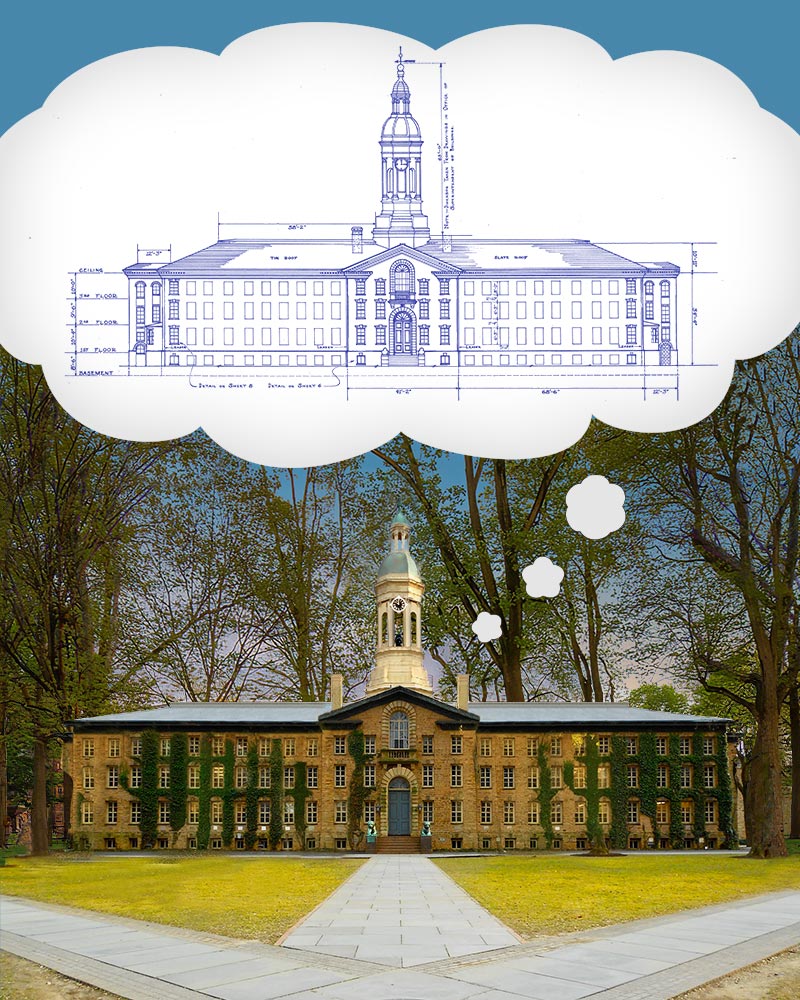Think (1)
(part one of three)
In the first semester of my freshman year at Princeton University, I took an English course called Modern Drama. Under the supervision of an apathetic graduate student, twelve of us were sitting around a table and discussing our first assigned play, Chekhov’s The Cherry Orchard.
“I think Chekhov was brilliant to make such a profound social statement in the form of a farce,” said one student.
“Even though it’s a comedy, he clearly has great compassion for his characters,” said another.
I was startled. “This is my first exposure to Chekhov,” I said. “I read this play without knowing anything about it beforehand. And so, I have to say I’m surprised to hear all of you refer to it as a comedy. I had no idea it was supposed to be funny. My sense of it was that it was deeply sad.”
A second-year student glared at me from across the table. “You didn’t realize it was a comedy?” she said. “Then what did you think about all those scenes with Pishchik groveling for money? What did you think about Gayev’s ode to his bookcase? What did you think about Yepikhodov and his accidents?”
I stared back at her dumbly.
“Well?” she said, drawing herself up self-righteously. “Didn’t you think?”
Well, no, actually; I didn’t. The assignment had been to read the play; it had never occurred to me that I was supposed to think about it. So far as I knew, art — dramatic or otherwise — was something that was supposed to be experienced and responded to on a feeling level. The idea of thinking about a play seemed as absurd as thinking about a painting or a symphony.
That student’s scathing comment was my first sign that I was now living in a very different universe. At Princeton, the proper response to anything — including a painting or a symphony — was to think about it, to analyze it. We were scholars, and that’s what scholars are supposed to do.
In art classes, we would analyze the structure and iconography of a painting. In music classes, we would examine a composer’s use of harmony and counterpoint. To me, this sort of work seemed not only tedious, but irrelevant. The important questions, it seemed to me, were “Why is this painting beautiful?” or “Why does this piece of music move me?” The answers to questions like these remained beyond the reach of scholarly analysis.
Because I’d always shown a talent for writing, it was generally assumed that I’d major in English at Princeton. My experience in Modern Drama put a quick end to that expectation. Not only did I have no aptitude for analyzing a piece of literature; I failed to understand why I was supposed to analyze a piece of literature. Clearly, literature was capable of being entertaining, emotionally powerful, and even thought-provoking. But I couldn’t see how it actually mattered, and I had little patience for people who did think so. This proved to be a particular problem during my upperclass years, when I found myself in a relationship with Marcia, an English major.
In those days before word processors, when school papers were generally drafted on a legal pad, one of the responsibilities of a romantic partner was to sit through the night at a typewriter and type up each freshly handwritten page.[1] It would be three o’clock in the morning, and I’d be squinting at a paragraph that Marcia had indecipherably scribbled in the margin. “What does this say?” I’d ask her. She’d press her nose against the page and read to me what she’d written: some apparent nonsense about symbolic patterns in Dickens or figurative language in George Eliot. “Great,” I would say caustically. “That was worth asking about.”
Granted, this was not a useful attitude to take at three o’clock in the morning. But it truly bothered me that she was wasting her considerable intelligence and effort — not to mention my lost sleeping time — on work of so little consequence. “In case you didn’t realize it,” I would tell her, “the stuff in these books isn’t real. Somebody made it all up.”
Marcia had the last laugh, of course. The papers that seemed so clearly pointless to me were regarded as gold by her professors. She eventually graduated summa cum laude and Phi Beta Kappa. And as much as I wanted to be happy for her, what I really felt was envy.
(To be continued in part 2)
[1] This is a good time to note that Marcia has taken issue with what I said in my post “Paper Delivery.” As she remembers it, she typed my thesis. I think we’ll need to leave it to future biographers to sort this one out.
